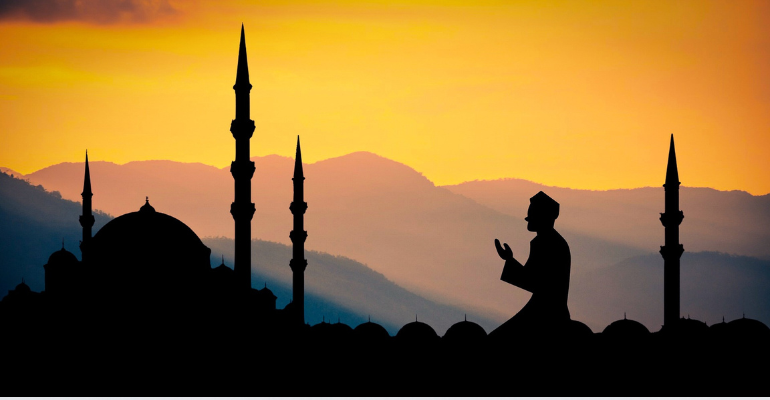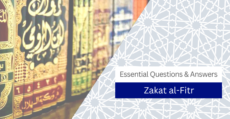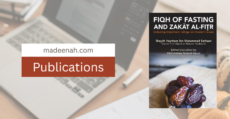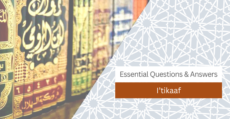In the name of Allāh, ar-Raḥmān (the most merciful), ar-Raḥīm (the bestower of mercy).
Fasting (sawm) is one of the greatest acts of ‘ibādah and carries much reward. Sufficient as its virtue is the fact that a gate in Paradise, named Rayyān, is opened exclusively for those who fast, and closed after they have passed through it. [1]
In addition to the reward of the hereadter, fasting benefits a Muslim in other ways – physically, emotionally, and, most importantly, spiritually. Some of the benefits of fasting include:
1. It increases self-control and decreases a person’s desires
Indulging oneself in all that the self desires leads only to more desires. However, when a person withholds from worldly desires such as eating, drinking and sexual intercourse, these desires are weakened, and the soul becomes calm and tranquil. Due to this, the Prophet ﷺ advised:
O youth, whoever among you is able to marry should do so. Whoever is not able to, he must fast; for it will be a shield for him. [2]
2. It is a prevention from committing sins
When fasting for the sake of Allāh alone and with a sincere intention, a person becomes more conscious of Allāh and anything displeasing to him. Fasting, therefore, increases a person’s piety and prevents a person from sinning. For this reason, Allāh, the most-high, said,
{O you who believe, Fasting has been prescribed upon you just as it was prescribed upon those before you, so you may have Taqwa (piety)} [02:185]
3. It cultivates within a person values of sincerity, integrity and honesty
Whilst fasting, a person withholds from food and drink which in of-it-self is ḥalāl (permitted); this is a reminder for that same person to strive further and withhold from what is ḥarām (impermissible). It is this level of discipline that will aid a person towards becoming increasingly sincere and honest.
If a person does not abstain from ḥarām, Allāh is not in need of him abstaining from ḥalāl. This is why the Prophet ﷺ said:
Whoever does not abstain from false statements and evil actions, Allāh is not in need of him leaving his food and drink (by fasting). [3]
4. It teaches patience and discipline in times of difficulty
Patience is the skill of controlling one’s self and desires in being obedient to Allāh, controlling one’s self from disobeying Allāh and controlling one’s self when reacting to the decree of Allaah. Whilst fasting, a Muslim seeks to control himself from eating and drinking, as well as disciplining his mind, tongue and limbs in refraining from acts of disobedience. In this meaning, the Prophet ﷺ said,
When one of you awakens in the morning for fasting, he should not use obscene language nor behave ignorantly. If anyone slanders him or tries to argue with him, he should say: ‘Indeed, I am fasting! Indeed, I am fasting!’ [4]
5. It sprouts the seeds of mercy
During the month of Ramadān, we endure long hours of hunger and thirst, whilst reminding ourselves of our fellow human beings who are poor, destitute and hungry. When a person feels the pain of hunger for a short period of time, he remembers the poor person who feels the pain of hunger at all times.
It was said to the Prophet Yūsuf, ‘alayhi as-salām:
Why do you prefer to remain hungry, when you have at your disposal the store-houses of the land?
Prophet Yūsuf replied,
I fear that if I satisfy myself with food, I will forget the hungry, poor person. [5]
6. It protects the body from overeating and toxic foods, thus preventing illness
Overeating, and more so indulging, in foods that are processed and toxic has been identified as the root cause of many illnesses. Indeed excessive eating is an action that is disliked by Allāh:
{Eat and drink, but be not excessive. Indeed, He does not like those who commit excess} [07:31]
Some scholars commented on this, saying, ‘Allāh has gathered together all of medicine in this āyah.’
The Prophet ﷺ said,
The child of Ādam fills no vessel worse than his stomach. Sufficient for the child of Ādam are a few morsels to keep his back straight. If he must eat more, then a third should be for his food, a third for his drink and a third for air. [6]
7. It develops mental strength and tolerance as well as reducing temperament and anger
The strength of a person’s tolerance lies in how successful this person is in avoiding any avenue which increases him in anger. One half of fasting is patience, and patience is one half of imān. The Prophet ﷺ said to Mu’ādh Ibn Jabal,
Shall I not show you the doors of goodness?
Mu’ādh replied,
‘Of course, O Messenger of Allāh.’
He then said,
Fasting is like a protective shield. [7]
Therefore, fasting is a shield which strengthens a person, increases his levels of tolerance and patience and protects him from anger.
8. Fasting is an avenue to further goodness
Whilst fasting, the act of abstaining from food and drink is not the ultimate objective. Rather, fasting itself is an avenue and a means to good. The condition of a fasting Muslim should be such that in the month of Ramadān, he increases in prayer, remembrance of Allāh, recitation of the Qur’ān, charity and other deeds of righteousness.
If we were to implement the above, we would actualise the saying of Allāh,
{That you fast, is of more goodness to you; if only you knew} [02:184]
9. Fasting helps a person to develop a personal relationship with Allāh
Whilst fasting, a Muslim abandons food and drink sincerely for the sake of Allāh. He returns to his Lord in supplication and engages in constant remembrance of Him. During Ramadān, the day is spent in fasting, and the night is spent in salāh. Thus, the whole of this month is a relationship with Allāh.
For this reason, the Prophet ﷺ narrated that Allāh, the most-high, says regarding a fasting person,
He has abandoned his desires, food and drink for y sake. His fasting is for me and I will reward him. [8]
Footnotes
[1] Narrated by Sahl Ibn Sa’ad; collected by al-Bukhārī & Muslim.
[2] Narrated by Ibn Mas’ūd; collected by al-Bukhārī & Muslim.
[3] Narrated by Abu Hurayrah; collected by al-Bukhārī.
[4] Narrated by Abu Hurayrah; collected by Muslim.
[5] Mawārid adh-Dhamān li-durūs az-Zamān Vol. 1 Page. 362.
[6] Narrated by Miqdām; collected by at-Tirmidhī & Aḥmad.
[7] Narrated by Mu’ādh Ibn Jabal; collected by an-Nasāī.
[8] Narrated by Abu Hurayrah; collected by al-Bukhārī.






